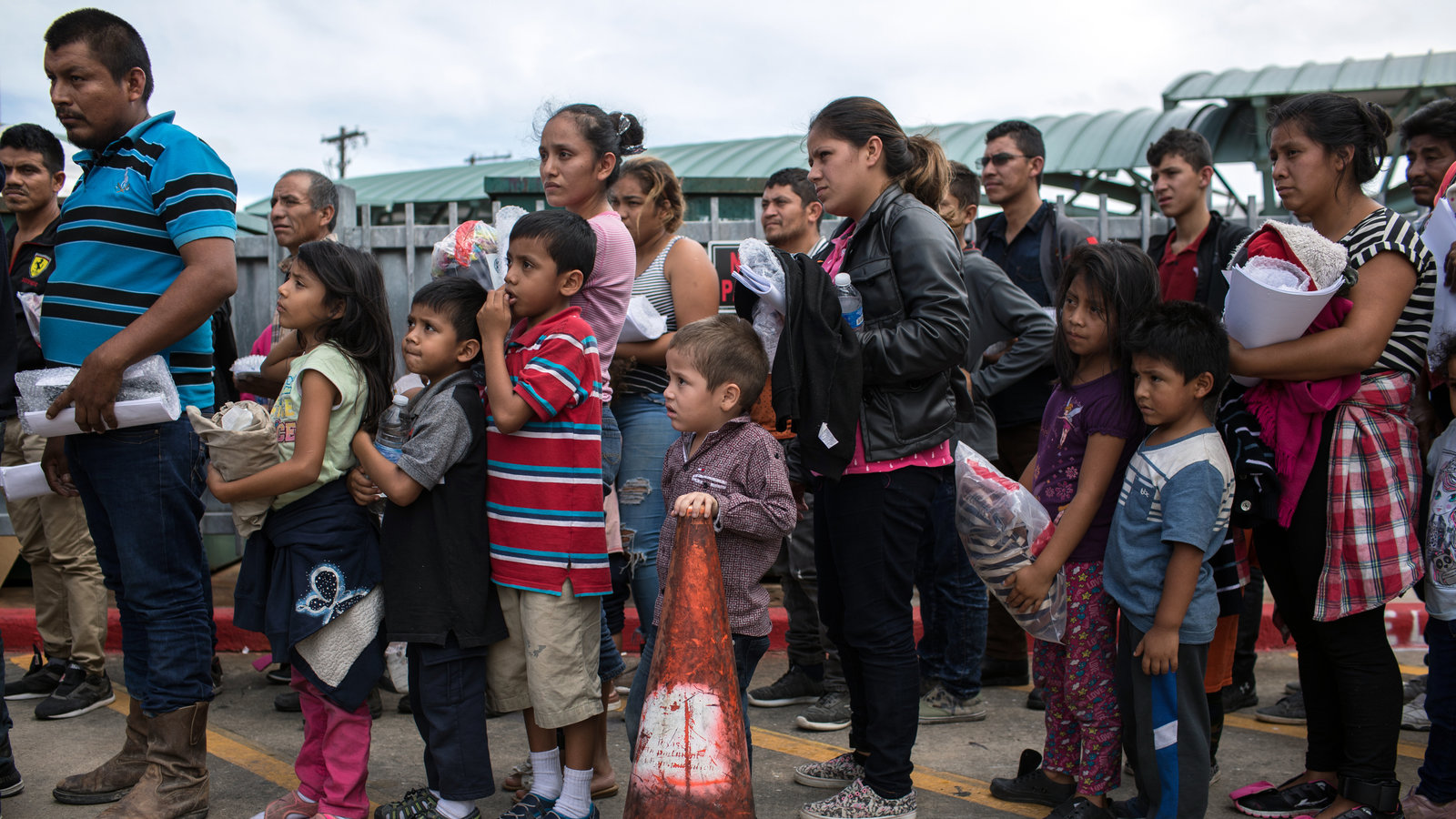Undocumented Labor Migration: Parliament's Intervention

Table of Contents
The Economic Realities of Undocumented Labor Migration
The economic impact of undocumented labor migration is multifaceted and often debated. While undocumented workers contribute significantly to certain sectors, their presence also raises concerns about exploitation and its effect on the broader economy.
-
Contribution to the Economy: Undocumented workers often fill labor shortages in sectors reluctant to hire documented workers due to higher wages and benefits. This is particularly evident in agriculture, construction, and hospitality, where physically demanding jobs often go unfilled by the domestic workforce. Their low-cost labor can lower production costs for businesses, potentially benefiting consumers through lower prices. However, this advantage comes at a significant cost.
-
Negative Economic Impacts: The very nature of undocumented work often leads to exploitation. Undocumented workers are frequently vulnerable to low wages, poor working conditions, and a lack of legal protections. Moreover, the informal nature of their employment results in significant tax evasion, depriving governments of much-needed revenue. This can lead to downward pressure on wages for legal workers in the same fields.
-
Fiscal Impact and Policy Consequences: The fiscal impact of undocumented migration is a complex calculation. While tax revenue is lost due to evasion, undocumented workers still utilize public services like healthcare and education, placing a strain on public resources. Stricter enforcement measures to combat undocumented labor migration can have significant economic consequences, potentially causing labor shortages and disrupting supply chains. Conversely, regularization programs, while costly, can bring undocumented workers into the formal economy, increasing tax revenue and boosting economic activity.
Parliament's Legislative Responses to Undocumented Labor Migration
Parliaments worldwide adopt diverse approaches to managing undocumented migration, reflecting varying national priorities and political landscapes. These approaches can broadly be categorized into stricter enforcement, regularization programs (often referred to as amnesties), and the creation of pathways to citizenship.
-
Stricter Enforcement: This approach involves increased border control, stricter penalties for employers hiring undocumented workers, and expedited deportation procedures. While aiming to deter illegal migration, it can lead to human rights abuses and create a climate of fear. Examples include increased border patrols and the criminalization of employers hiring undocumented workers.
-
Regularization Programs (Amnesties): These programs offer a temporary or permanent legal status to undocumented migrants who meet specific criteria, often involving a period of residence and a clean criminal record. Successful amnesties have been implemented in several countries, providing a path to integration and legal employment. However, these programs can also attract further undocumented migration and face political opposition.
-
Pathways to Citizenship: Some countries offer pathways to citizenship for undocumented migrants who meet certain requirements, such as a minimum period of legal residency, language proficiency, and passing a civic test. These pathways provide long-term stability for migrants and their families, and can help integrate them into society.
-
Case Studies: The experiences of countries like Canada and Germany, with their relatively welcoming immigration policies, contrast sharply with those of countries that have implemented stricter enforcement measures, highlighting the diverse impacts of various parliamentary approaches. Analyzing these case studies, including their successes and failures, offers crucial lessons for policymakers worldwide.
The Social and Political Implications of Parliament's Actions
The social and political consequences of parliamentary interventions in undocumented labor migration are profound and far-reaching. Public perception, media narratives, and political strategies all play a significant role in shaping the debate and influencing policy outcomes.
-
Public Opinion and Media Narratives: Public perception of undocumented migrants is often influenced by media portrayals, which can range from sympathetic to highly critical. Negative narratives can fuel xenophobia and prejudice, making it challenging to implement humane and effective immigration policies. Accurate and balanced reporting is crucial in fostering a more informed and compassionate public discourse.
-
Social Integration and Political Polarization: Successful integration of undocumented migrants into society depends heavily on policies that promote access to education, healthcare, and employment. Failure to integrate migrants can lead to social unrest and increased political polarization. Different political parties often adopt vastly different approaches to immigration, further exacerbating social divisions.
-
Political Strategies and the Immigration Debate: The issue of undocumented labor migration is often a focal point of political debate. Political parties may adopt opposing viewpoints, using the issue to garner public support and mobilize voters. Understanding the political dynamics surrounding immigration is crucial to achieving effective policy solutions.
The Role of International Cooperation
Addressing transnational undocumented labor migration requires significant international cooperation. International organizations and bilateral/multilateral agreements play a vital role in setting standards and facilitating collaboration.
-
Role of International Organizations: The UN and ILO, among others, play crucial roles in setting international standards for the protection of migrant workers' rights, promoting fair labor practices, and advocating for humane immigration policies. Their recommendations provide valuable guidelines for national parliaments.
-
Bilateral and Multilateral Agreements: Agreements between countries on issues such as border control, labor mobility, and the repatriation of migrants are essential in managing cross-border migration effectively and humanely. These agreements help to harmonize immigration policies and prevent exploitation.
Conclusion:
Parliamentary intervention is crucial in addressing the complexities of undocumented labor migration. By examining the economic realities, legislative responses, and socio-political implications of different approaches, we can develop more effective and humane solutions. Finding a balance between upholding national interests, protecting the rights of migrants, and fostering economic stability requires careful consideration and ongoing dialogue. Further research and informed public debate are needed to develop comprehensive strategies that tackle undocumented labor migration effectively. Only through thoughtful and collaborative efforts by Parliaments and other stakeholders can we move towards more just and sustainable solutions for undocumented labor migration. Let's continue the conversation and advocate for comprehensive policies addressing undocumented labor migration and its multifaceted challenges.

Featured Posts
-
 No More Trips Fabers Updated Refugee Policy
May 12, 2025
No More Trips Fabers Updated Refugee Policy
May 12, 2025 -
 Prince Andrews Bombastic Temperament Unseen Accounts From Royal Staff
May 12, 2025
Prince Andrews Bombastic Temperament Unseen Accounts From Royal Staff
May 12, 2025 -
 Tom Conrads Vision An In Depth Interview On Sonos Future
May 12, 2025
Tom Conrads Vision An In Depth Interview On Sonos Future
May 12, 2025 -
 Pga Tours Zurich Classic Mc Ilroy And Lowry Commit To Title Defense
May 12, 2025
Pga Tours Zurich Classic Mc Ilroy And Lowry Commit To Title Defense
May 12, 2025 -
 Nba Playoffs Knicks Vs Pistons Betting Odds Picks And Bet365 Bonus Code Nypbet
May 12, 2025
Nba Playoffs Knicks Vs Pistons Betting Odds Picks And Bet365 Bonus Code Nypbet
May 12, 2025
